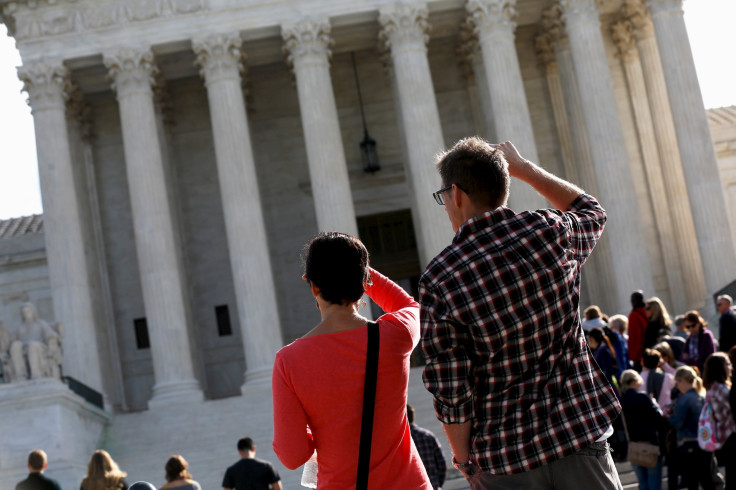Abortion Rights 2015: US Supreme Court To Weigh In On Texas Abortion Law

The U.S. Supreme Court decided Friday it would weigh in on whether restrictions on abortion in Texas are constitutional, marking the first time the court will hear a major abortion case since 2007. A ruling in the case could affect millions of women and how abortion rights are granted across the nation.
In Whole Woman’s Health v. Cole, the court will most likely look at restrictions that led to the closure of about half the state’s 41 abortion clinics, according to Politico. These restrictions include requiring abortion providers to have admitting privileges to a nearby hospital and requiring abortion facilities to have the same building standards as ambulatory surgical centers.
Abortion rights supporters have said the regulations are unnecessary, lead to abortion clinic closures and don’t make abortions safer, which the restrictions’ supporters have touted as the reason behind the rules. Restrictions on abortions were allowed by the Supreme Court under the 1992 ruling in Planned Parenthood v. Casey.
"It's overdue," Steven Aden, senior counsel with Alliance Defending Freedom, which has submitted briefs on behalf of several states, told USA Today. “The Casey standard is unworkable and was ill-designed to begin with. We have more litigation now over the meaning of the Casey standard than we’ve ever had."
In Casey, the Supreme Court ruled that restrictions -- such as mandatory counseling and waiting periods -- were constitutional. Lawmakers have continually supported abortion restrictions since the Casey decision. Sen. Lindsey Graham, R-S.C., introduced a bill in June that would nationally ban many abortions after pregnancies reach 20 weeks, and Wisconsin Gov. Scott Walker has said he would support a similar measure in his state, according to the Atlantic.
The Supreme court may wade back into the abortion debate. https://t.co/v1oWoOvItC pic.twitter.com/9R86RjIwUq
— USA TODAY (@USATODAY) November 13, 2015The case comes amid a time when abortion access has reached a boiling point. Some 231 abortion limitations were enacted in states since the 2010 mid-term elections, including limits on insurance coverage and abortion access to minors, according to the Guttmacher Institute, a nonprofit that works to advance reproductive rights.
About half the states require a one- to three-day waiting period for women to receive an abortion after she has gone through counseling. Abortions in general have also decreased nationally in the past five years by about 12 percent. Abortions have decreased by about 15 percent in states that have strong anti-abortion laws, such as Indiana and Oklahoma, according to an Associated Press survey.
The last major abortion case before the Supreme Court was Gonzales v. Carhart in 2007, in which the court upheld bans on many late-term abortions. Since then, the court has refused to hear various pleas from states looking to appeal lower court rulings against abortion restrictions.
© Copyright IBTimes 2024. All rights reserved.











